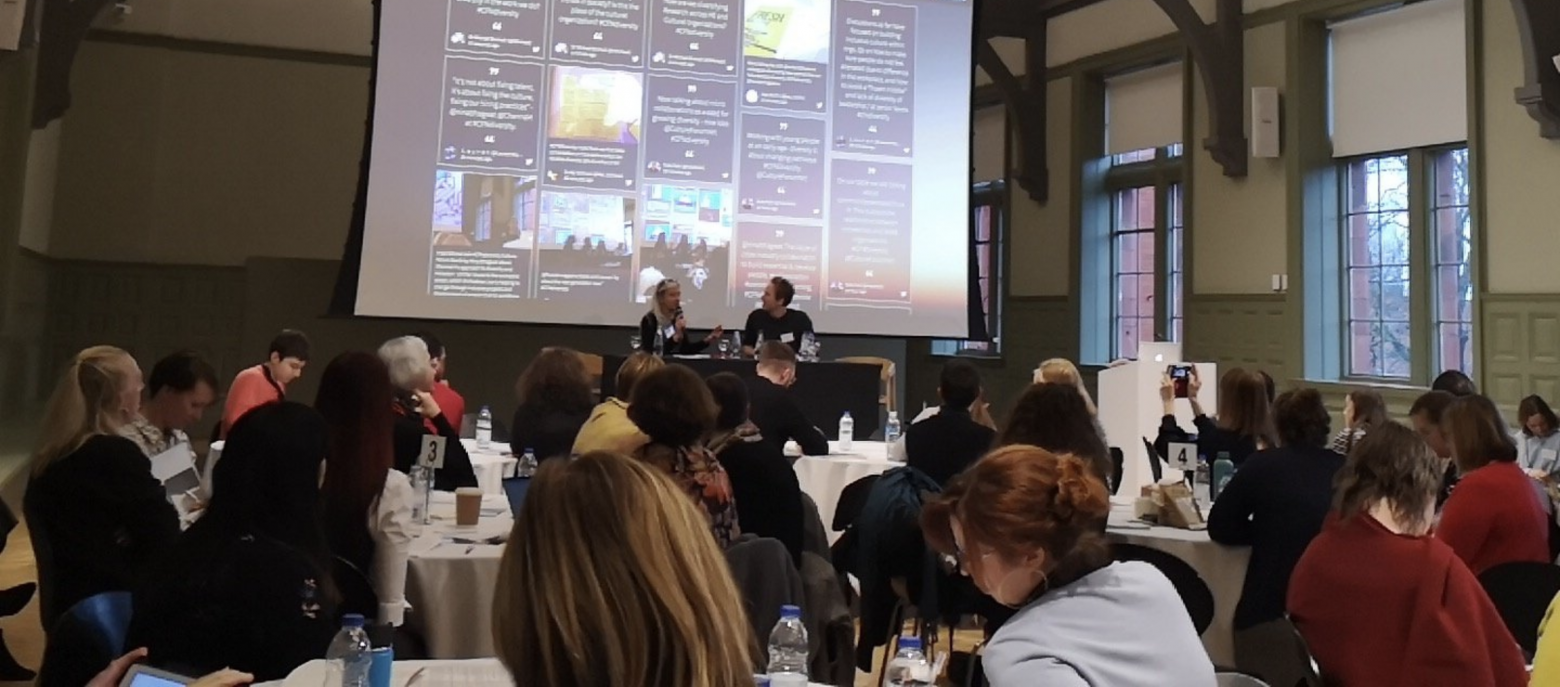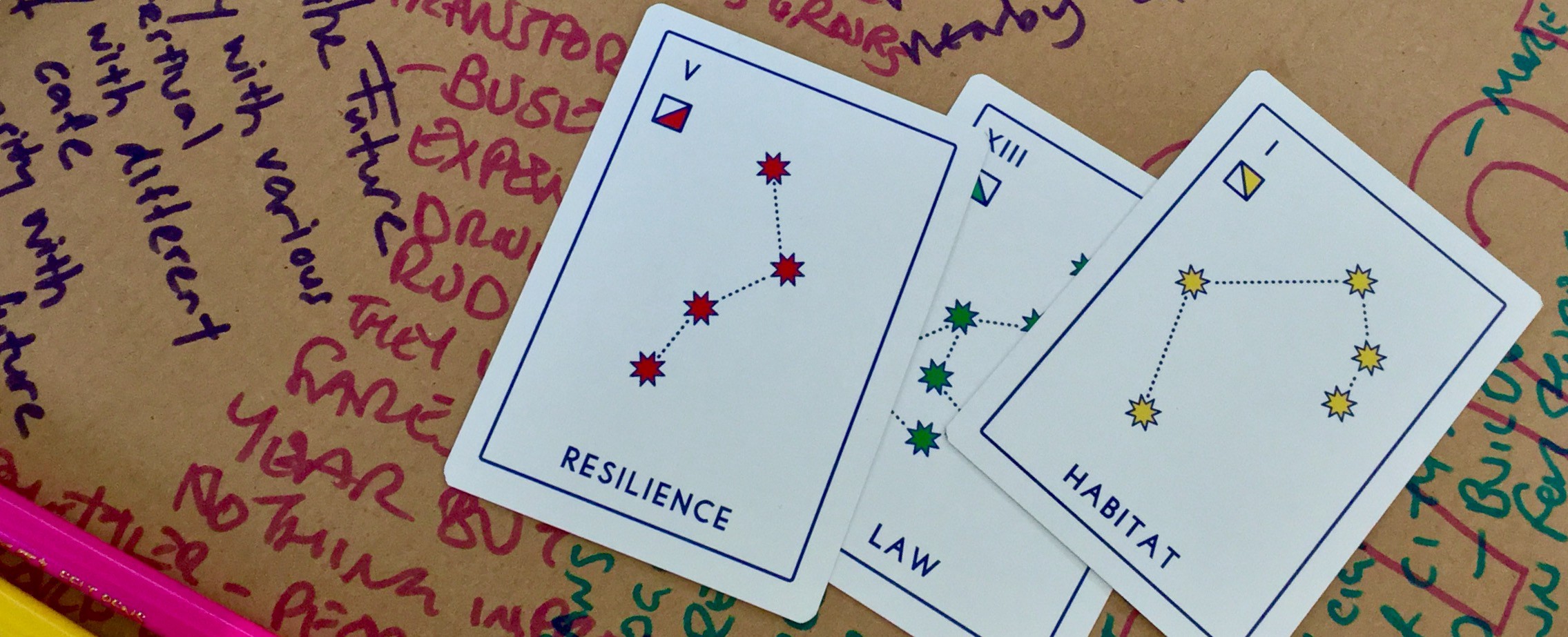For a while now I’ve wanted to put something together reflecting on the personal journey I’ve been on over the past two and a half years working on the Coventry.Domains initiative, particularly how my own knowledge has grown with the project. When Coventry.Domains launched in October 2016 I hadn’t self-hosted a website myself before and had only worked on websites that were maintained by others, usually in the form of publishing one-off posts for art projects or community updates for the DMLL. I had to quickly learn not only software such as WordPress and cPanel but more fundamentally how the web actually works. Now nearly two and half years later I manage a community of over 1600 people (staff and students) to develop their own self-hosted online spaces through Coventry University’s Domain of One’s Own initiative.
This post is a long ramble and reads more like a letter to myself, but goes some way to explain how we built the Coventry.Domains community in its first year of life.

Thinking back it’s weird how little I knew at the beginning. At no point throughout my education had I ever been taught what the internet is versus the web, or how any of it works.
As an undergrad art student I was encouraged to blog about my practice or to create a portfolio website, but there was never an offer of explanation as to how to go about doing this. Most people I knew, myself included, bought a domain name and pointed it at a hosted Tumblr or WordPress.com site. I was pretty resistant to creating a blog as it felt like hoop jumping for the sake of assessment. And without any staff who could show us how to do this it felt like we (students) were being pushed to do something publicly that our lecturers would not do themselves for their own practice. I would write what I thought would achieve the grade that I wanted and after each academic year I would strip out all my content after I received my final marks back. I didn’t feel like I was creating an online space for my work that was authentically mine or that I had agency over. I then graduated in 2014 with my Tumblr site without any understanding of how to build my own self-hosted website without paying someone over the odds to do it for me.
After graduating I gained experience working on WordPress and MediaWiki sites on various art projects, but for publishing content rather than building or maintaining them. How to start a website from scratch was still fuzzy to me and the people who I met along the way that did this kind of work always seemed hesitant to explain if I asked. I assumed you had to be techy and know how to code (in what I probably didn’t know), so I guessed from people’s reactions that it was off limits to me unless I wanted to invest time to train myself.

Spin forwards to October 2016 and my introduction to Coventry.Domains and web hosting began with Isabel Galvis giving me an hour one-shot tutorial of clicking through to install WordPress in cPanel and then a whirl wind tour of the WordPress dashboard. Every time we hit a new screen I made sure to screenshot it just so I could flick back through all the steps again. This introduction took place the same week as I joined the first training sessions rolling the initiative out to staff. Beyond this I pretty much learned as I went. Each time I was asked a new question I would learn from scratch with the asker, slowly building my knowledge of what was possible. We (the Domains team: Daniel Villar-Onrubia, Isabel Galvis, student activators, and me) delivered twice weekly two-hour training sessions to onboard interested staff members. Each time Isabel or Daniel started to answer a question I didn’t know the answer to I shadowed them talking through the issue so I could then give the explanation myself next time.

By April 2017 we had 200+ staff building their own websites for research, teaching or personal use, and 150+ students creating their own sites as part of curriculum. At this time I took over the bulk of system admin work for the project (on boarding new users etc.) as well as technical support requests. Anything I didn’t know fell to Isabel to answer, who was by now starting her PhD studies.
Building a community…
The first year of Coventry.Domains focused on giving staff (both academic and professional services) time to think through the possibilities of teaching, learning and building a research practice on/with the web. Coventry.Domains was open to all areas of the university by request, so we had users from a wide variety of disciplines and roles. Almost all, like me, had no previous knowledge or access to build self-hosted websites, and this led to many of the websites developed in this first academic year to be built to communicate existing projects or as simple personal reflection or portfolio spaces. Almost all were built with WordPress as our team focused on training people to use this application to streamline the scope of support queries we received.
A lot of our team’s community building work focused on bringing staff from different Schools, disciplines and roles together to share their concerns, successes and experience so that people could network and learn from one another. This was critical at a time in the project when general awareness of Domain of One’s Own, Open Educational Resources, Digital Fluency etc. across campus was in its infancy; and so training sessions provided those that were interested in any of the above to find like minded people and soundboard ideas. Once these pioneering folk had built confidence in the possibilities Domains offered them they could go on to build the argument back in their own departments for the projects they wanted to create.

My baseline tactic with support queries and training in this first year was to show community members how I was finding the information and learning myself – how to search for information at WordPress.org or how to find other reputable sources of information, or how to backup a site so you can break it and make it again. I was honest with people how much I knew, how quickly I picked stuff up, what I had learned from others or what I had discovered only last week. By explaining the learning curve I had gone through to get to grips with WordPress I aimed to make it clear that anyone can learn how to create a website.
I would also encourage those attending training to talk with each other and show off their websites even if they had only just started out so they could get feedback and positive vibes from colleagues. In my head it’s blindingly obvious that approaching skill sharing with transparency and openness is the best way to bring others on board and grow a community, but too often when I’ve been the tutee of technical knowledge this has not been the case.
In this first year we also created a small set of learning resources that were published openly on the Coventry.Domains site. This included video tutorials and a set of documentation created by Isabel Galvis based on the University of Oklahoma’s Create Documentation (Centre for Teaching Excellence CC BY-SA). I also made Domain, Paper, Scissors, a paper-based activity which takes learners through WordPress terminology and planning a landing page on paper. We hoped in time the community around Domains would become less reliant on our team and could go on to share their knowledge with colleagues and eventually students.
I continue to want to show people that making a website can be as simple or complex as they like, and for the whole process to feel possible (when taking into account time pressures and skill level). People should feel curious and energised by having the opportunity to play around with their new web hosting space. By framing Domains in this way those new to it can overcome worries around how technical it may or may not be, instead seeing it as an opportunity where they have full autonomy to create new capacity building projects, share their work openly, flex their creative skills and learn as they go.
This open approach has beared fruit in the long run, with a vibrant student and staff community across all faculties and campuses making use of Domains. You can find a few examples of the work created by staff in 2016/17 online here and interviews with lecturers who delivered Domains to students in this first year in videos here and here.

Building web literacies…
Before I end this post I want to point out how limited people’s understanding of digital technologies, data privacy and online services was in this first year. Many of the conversations our team had with staff and students were tangential to the use of Coventry.Domains.
A few examples. People would ask ‘is it like Facebook?’ after they had already seen the Coventry.Domains cPanel dashboard (the web hosting software that users see when they first log into their account) and sitting through two hours or more of training. Staff would bring their own work-issued device but not know what browser they were using or any of the settings. And let’s say some enlightening conversations and propositions related to passwords.
For some it took a long time and multiple training sessions to begin to orientate themselves as to how building your own website relates to any other experience on the web. A lot of these conversations felt like groundhog day, repeating the same conversations with the same people until they understood the implication of different technologies and what Domains could offer. This was in no way wasted effort as it led to open conversations and building common understanding and language that could be shared across the community. Our team’s transparency around how Coventry.Domains works opened up conversations about Coventry’s VLE and other institutional provision, and lots and lots of questions about Facebook, Google, WordPress.com and other 3rd party services.
This first year exposed the limited level of web literacy, and broadly, level of experience people have with digital technologies. Knowing this, the current evangelical rhetoric that exists around everyone everywhere being online and technology saving us all seems (to put it mildly) absurd and disconnected from the reality of people’s daily lives. By providing staff and students access to explore open technologies, space to think through their personal experiences online, and having conversations about what critical infrastructure could/should be we can move towards a more meaningful conversation around what 21st century education provision and learning environments might look like.

Images: Header image is by Billy Huynh on Unsplash. I went looking for custom cursors and then got caught up in gifcities.org, an Internet Archive project that aims to provide “Universal Access to All Knowledge” including GIFs. Don’t get lost in there.




